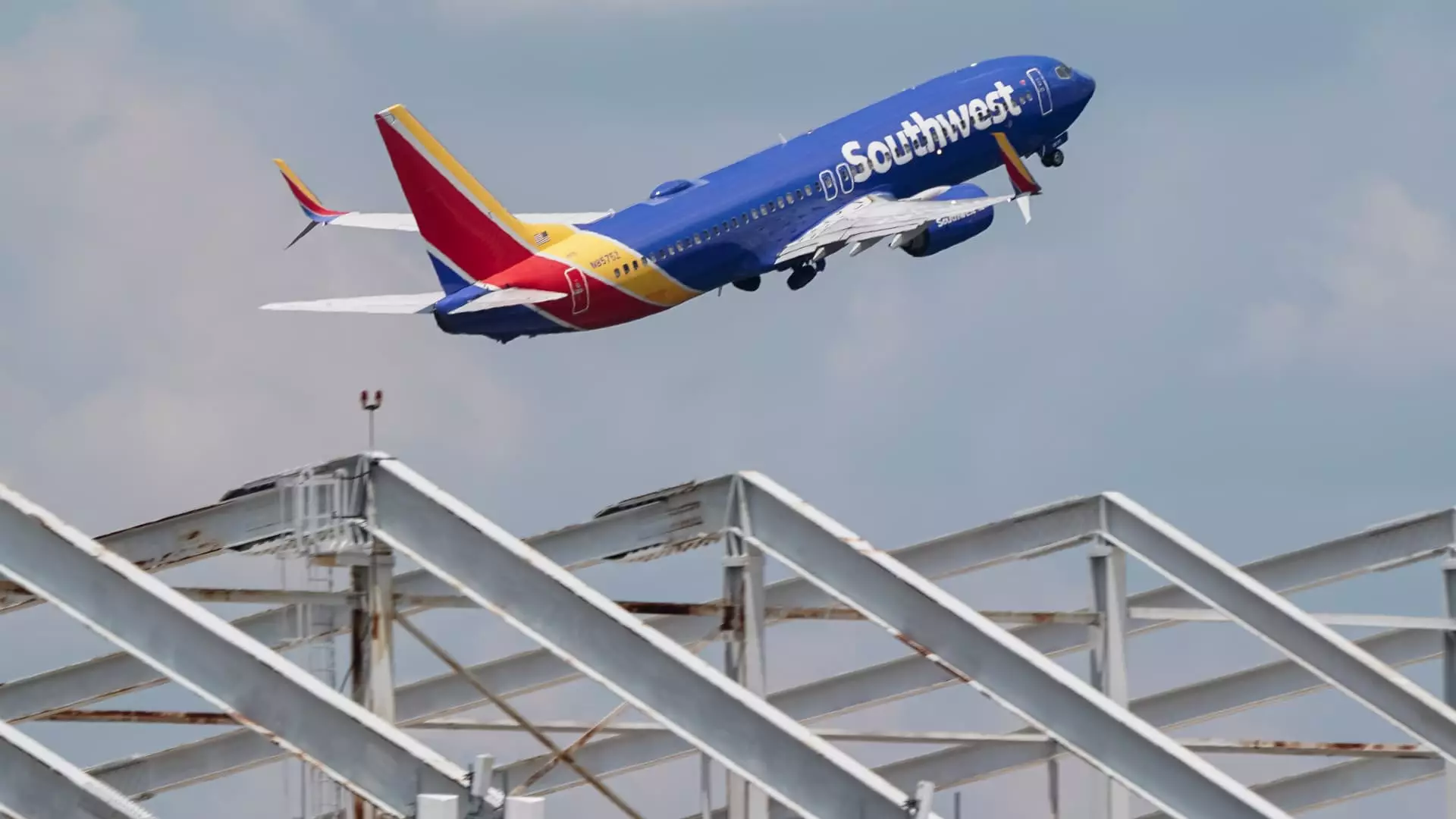Southwest Airlines, a prominent low-cost carrier known for its budget-friendly travel options, is making strategic changes to its operations in Atlanta, one of the most significant airports in the world. According to a recent memo obtained by CNBC, the airline plans to cut service routes and reduce its workforce in Atlanta, impacting over 300 pilot and flight attendant positions. This decision, while challenging, reflects the broader dynamics at play within the airline industry, including financial pressures, evolving consumer behaviors, and competitive challenges presented by established players like Delta Air Lines.
As part of its restructuring efforts, Southwest is slated to decrease its service to and from Atlanta starting next April. The airline will reduce its presence at the airport from 18 gates to 11, which will significantly alter its operational capacity in one of the busiest travel hubs in North America. From servicing 37 cities, Southwest will scale back to just 21 routes, which raises questions about the airline’s long-term strategy in the Atlanta market. This dramatically reduced footprint will inevitably lead to the displacement of approximately 200 flight attendants and 140 pilots, potentially forcing them to bid for positions in different cities. While Southwest clarifies that it will not lay off staff, the necessity for employees to relocate underscores the challenges faced by the company in aligning its workforce with its revised operational strategy.
The motivation behind these cuts goes beyond mere operational optimization; it reflects prevailing financial pressures affecting airlines across the board. Southwest has noted that it can no longer sustain losses in Atlanta without making changes, indicating a critical need to restore profitability. The airline’s acknowledgment that these decisions do not impact employee performance signals an internal recognition of the dedication its staff has shown in maintaining service quality, despite adverse market conditions.
Moreover, Southwest’s difficulties are exacerbated by external challenges, including fluctuating consumer demand and increased competition. With Delta Air Lines firmly established as the major player in Atlanta, Southwest faces an uphill battle to retain market relevance. Additionally, the carrier’s operational issues linked to delayed aircraft deliveries further complicate its strategic outlook and impose a pressing need for a reevaluation of its service offerings and operational efficiency.
In conjunction with reducing operations in Atlanta, Southwest plans to enhance its service offerings in other regions, such as Nashville, Tennessee, indicating a shift in focus towards markets that may yield higher profitability. The decision to introduce overnight flights from Hawaii to mainland destinations represents Southwest’s strategy to tap into new revenue streams and adapt to changing travel patterns as it seeks to realign its fleet utilization with customer demand.
The broader implications of these changes are significant. They reflect Southwest’s ongoing efforts to optimize its network structure and meet evolving consumer preferences while maximizing revenue opportunities. It is important to note that these alterations are not merely reactive; they represent a proactive stance necessitated by the current landscape of the airline industry, characterized by increased operational complexities and a need for financial sustainability.
As Southwest Airlines embarks on this new chapter, the focus will undoubtedly remain on navigating the challenges posed by market dynamics and internal operational issues. With executives gearing up for an investor day where strategic initiatives will be outlined, stakeholders will be keenly watching Southwest’s next moves. This reshaping of its Atlanta operations may serve as a pivotal moment for the airline, providing insight into its future direction amid an evolving industry.
Southwest Airlines’ changes in Atlanta symbolically represent the larger narrative of adaptability in the airline sector. Whether these strategic pivots will yield the desired financial turnaround and customer loyalty remains to be seen—but what is clear is that the airline is committed to navigating this turbulent environment with an eye on long-term sustainability and profitability.


Leave a Reply